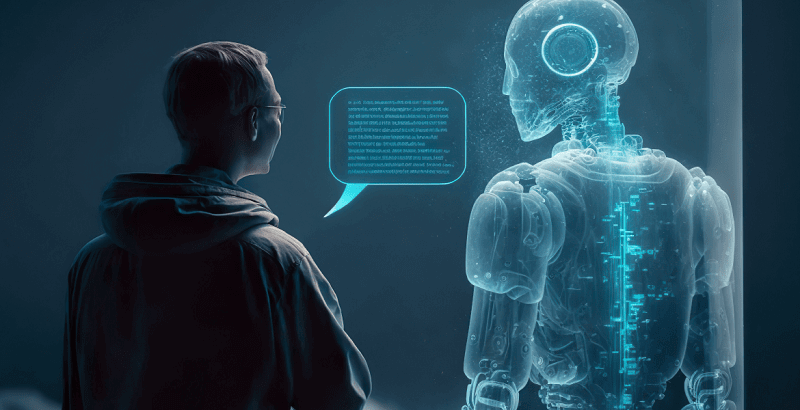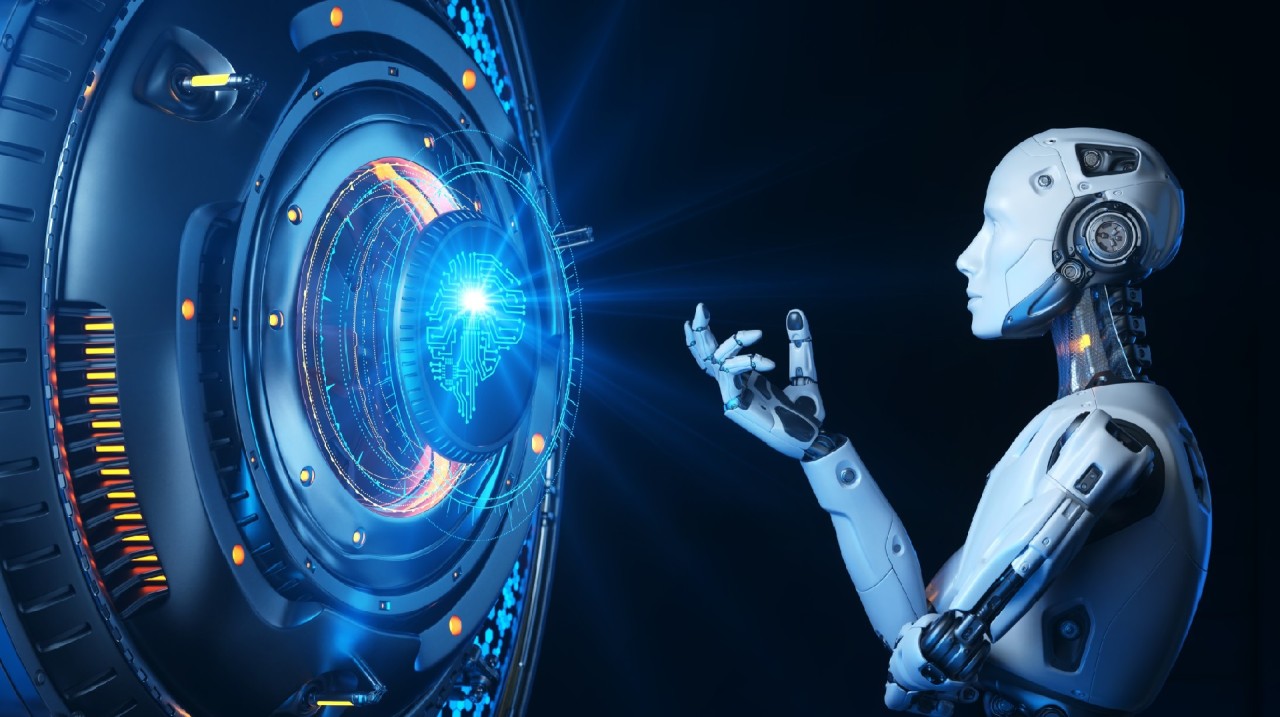Quality assurance (QA) is a critical component of the software development lifecycle (SDLC), ensuring that the final product is free from defects and performs as expected. However, as software applications become more complex and the demand for faster releases increases, traditional manual testing methods can no longer keep up. Enter Artificial Intelligence (AI), which is transforming the way QA is performed. AI-powered tools and techniques are enhancing the speed, efficiency, and accuracy of software testing, making it a game-changer for businesses looking to optimize their QA processes.

In this blog, we will explore how Artificial Intelligence is revolutionizing quality assurance in software testing, examining its benefits, applications, and the tools that are shaping the future of software testing. At One Technology Services, we specialize in helping businesses leverage AI in their software testing strategies to achieve faster, more reliable testing and high-quality software releases.
1. The Role of AI in Software Testing
Artificial Intelligence, when applied to software testing, brings several innovations that address the limitations of traditional manual and automation testing methods. By utilizing machine learning, natural language processing, and pattern recognition, AI is able to perform tasks more efficiently and accurately than human testers or rule-based automation.
Here’s how AI contributes to the software testing process:
- Predictive Analytics: AI uses data from past test cycles to predict where defects are likely to occur in new versions of the software. This predictive capability helps testers focus on the most high-risk areas, improving test coverage while reducing redundant testing efforts.
- Test Automation: AI-driven test automation tools can run tests continuously, without human intervention, and adapt to changing application interfaces. Unlike traditional test scripts that need to be manually updated, AI can automatically modify test cases when the user interface or code changes, ensuring that the testing process remains efficient.
- Intelligent Defect Detection: AI tools can identify and analyze defects much faster than humans by looking for patterns and anomalies that may not be immediately apparent. This leads to quicker resolution of issues and higher-quality software.
By leveraging AI in software testing, businesses can significantly reduce manual errors, speed up the testing process, and achieve more thorough test coverage.
2. Benefits of Using AI for Quality Assurance
AI is offering several benefits that are transforming the QA landscape, providing businesses with the ability to release software faster and more reliably. Here are some of the key advantages of incorporating AI into the QA process:
2.1 Increased Efficiency and Speed
Manual testing is often time-consuming and labor-intensive, with human testers needing to perform repetitive tasks for every new software version. AI-powered tools can run thousands of test cases simultaneously and execute tests in parallel, drastically reducing the time required for testing. This allows businesses to release software more quickly, improving time-to-market and overall productivity.
2.2 Higher Accuracy and Reliability
Human testers are prone to fatigue and errors, especially when dealing with repetitive testing tasks. AI, on the other hand, can perform tests with pinpoint accuracy, ensuring consistent results every time. AI can detect patterns, anomalies, and defects that may be difficult for humans to identify, leading to more reliable and comprehensive testing.
2.3 Smarter Test Coverage
AI algorithms can identify which areas of the software are most likely to contain defects based on past data and usage patterns. This predictive approach ensures that critical areas are thoroughly tested, while also optimizing the overall test coverage. AI can dynamically adapt testing strategies as the software evolves, ensuring that testing remains aligned with the most current version of the application.
2.4 Cost Savings
Automating repetitive testing tasks with AI reduces the need for human testers, which can lead to significant cost savings for organizations. Additionally, the faster turnaround time for testing means that software development cycles are shorter, allowing companies to deliver products faster and at a lower cost.
2.5 Continuous Integration and Continuous Delivery (CI/CD)
AI plays a pivotal role in CI/CD pipelines by automating testing and ensuring that each code change is tested immediately. As part of CI/CD, AI-driven testing allows businesses to implement continuous testing, ensuring that code changes are always tested in real-time before deployment. This ensures that only high-quality code reaches production.
3. AI Tools and Technologies for Software Testing
Several AI tools and frameworks are helping businesses implement smarter and more efficient testing processes. Here are some of the key AI-powered tools and technologies in the software testing space:
3.1 AI-Powered Test Automation Frameworks
- Testim: An AI-powered test automation tool that uses machine learning to help testers create, execute, and maintain automated tests. Testim adapts to UI changes automatically and provides robust reporting capabilities.
- Applitools: Applitools uses AI-driven visual testing tools to automatically detect visual bugs in web and mobile applications. Its Visual AI can compare screenshots of applications and highlight differences between expected and actual results, improving the speed and accuracy of UI testing.
3.2 AI for Test Case Generation
- Test.ai: This tool uses machine learning to automatically generate test cases based on app behavior. Test.ai continuously learns and improves its ability to detect new bugs by observing how the app responds to different inputs.
3.3 Performance Testing with AI
- LoadNinja: LoadNinja is an AI-powered performance testing tool that simulates real user traffic and automatically identifies performance bottlenecks. It provides insightful analytics that help optimize application performance.
4. How AI is Enhancing Regression Testing
Regression testing ensures that recent code changes haven’t broken any existing functionality in the software. Traditionally, regression testing can be cumbersome, requiring testers to manually re-run large test suites. AI-driven regression testing tools can quickly identify which test cases are most relevant for the current code changes, optimizing the testing process and reducing the number of tests that need to be run.
AI can also automate the maintenance of regression test scripts, ensuring they are always up to date with the latest software version. By analyzing the impact of code changes, AI can automatically suggest which tests need to be executed, thus ensuring comprehensive testing with minimal manual intervention.

5. AI-Driven Defect Prediction and Prevention
AI is not just used for detecting bugs but can also predict defects before they occur. By analyzing historical data from previous test cycles, AI can learn patterns of software failure and identify areas where defects are most likely to emerge. This predictive capability allows businesses to be proactive about addressing potential issues before they become problems.
AI can also help prevent defects by recommending coding practices and software designs that are less prone to errors. By using data-driven insights, AI can provide developers with recommendations for writing cleaner, more reliable code.
6. Challenges and Considerations When Using AI in Software Testing
While AI offers significant benefits in software testing, there are a few challenges that businesses should consider when implementing AI-powered testing:
- Data Dependency: AI algorithms rely on high-quality data to make predictions. If the training data is inadequate or biased, the AI system may not function as expected.
- Cost of Implementation: Implementing AI tools for software testing can be expensive, especially for small businesses. However, the long-term benefits often outweigh the initial investment.
- Continuous Learning: AI systems must continuously learn from new data and experiences to improve their accuracy and performance. This requires ongoing monitoring and adjustments to ensure the system is providing value.
Conclusion
Artificial Intelligence is revolutionizing the way businesses approach software testing, making it faster, more accurate, and more efficient. By automating repetitive tasks, enhancing test coverage, and predicting defects before they occur, AI allows businesses to maintain high-quality software releases while reducing time and costs. With AI-powered tools, organizations can ensure that they are not only meeting regulatory standards but exceeding them, resulting in improved operational efficiency and better customer satisfaction.
At One Technology Services, we understand the transformative potential of AI in software testing. We help businesses leverage the power of AI to optimize their QA processes, improve compliance, and ensure high-quality software releases. By incorporating AI into your testing strategy, you can streamline your workflows and stay ahead of the competition.
For more information on how AI can revolutionize your software testing processes, contact One Technology Services today. Let us help you achieve greater efficiency, compliance, and accuracy in your software development lifecycle.

